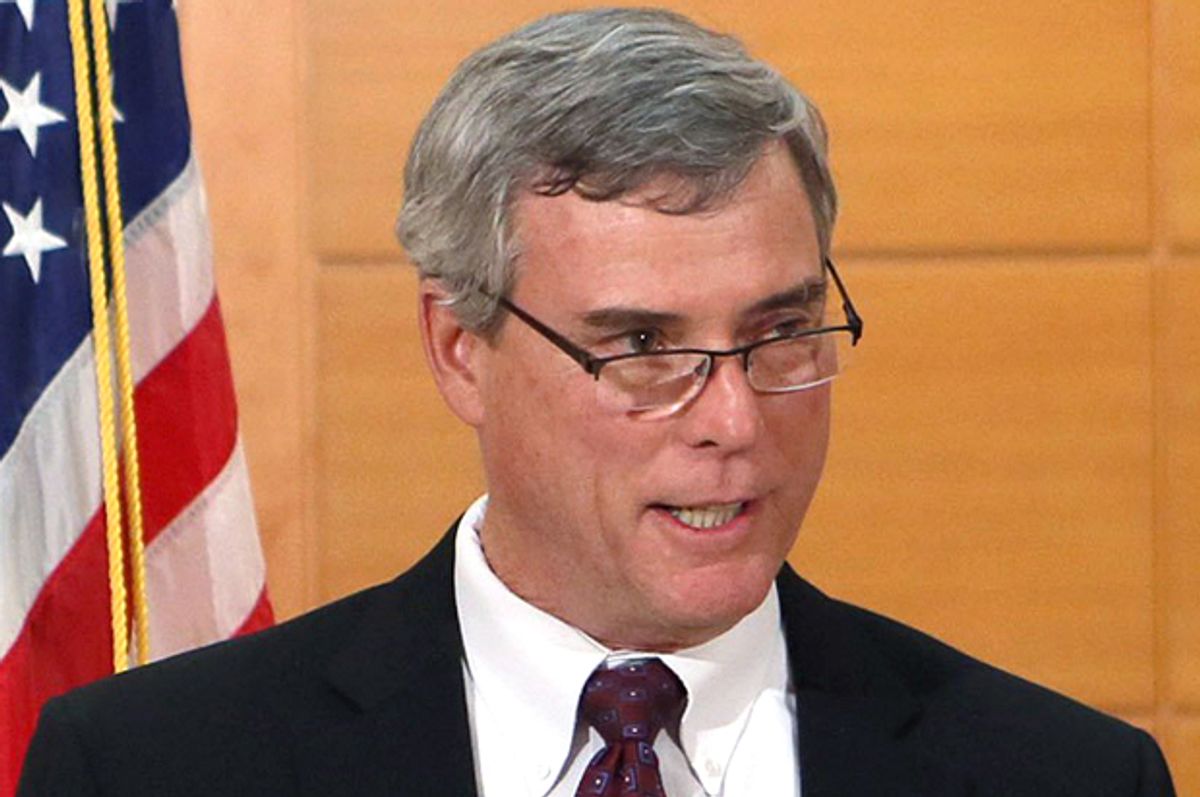When St. Louis County prosecuting attorney Robert McCulloch delivered the grand jury decision not to indict Darren Wilson for any crimes in the shooting of Michael Brown, McCulloch found a new perpetrator to blame instead: social media. Apparently Facebook and Twitter, where many of the initial accounts of the shooting were shared, really cramped local law enforcement’s ability to control the narrative around the shooting.
“On August 9, Michael Brown was shot and killed by police officer Darren Wilson,” McCulloch said. “Within minutes, various accounts of the incident began appearing on social media—accounts filled with speculation and little, if any, solid, accurate information.” McCulloch then proceeded with his bizarre lecture, crediting the August protests that followed the shooting to social media and, oh, one more small, insignificant factor: “the underlying tensions between the police department and a significant part of the neighborhood.”
As McCulloch detailed the steps of the investigation, he made an outrageous claim: “the most significant challenge encountered in this investigation has been the 24-hour news cycle and its insatiable appetite for something—anything—to talk about. Following close behind were the nonstop rumors on social media.”
One might think a significant challenge to Ferguson law enforcement would be how to communicate effectively and safely with the residents whom they serve. Maybe they should try Twitter.
It’s true that the 24-hour news cycle and social media feed each other. Social media can and often does foster and exacerbate conflict. Not everyone sharing information online does so as a public service. But does McCulloch really want to say that it would have been easier to conduct this investigation if so many people hadn’t been paying attention? And most important, did he really want to make that the focus of his speech?
Needless to say, social media didn’t create the “underlying tensions” between the Ferguson police and residents, but it did help share its relevant contexts, like the staggering racial disparity in arrests.
McCulloch admitted that he can recognize, “of course, that the lack of accurate detail surrounding the shooting frustrates the media and the general public and helps breed suspicion among those who are already distrustful of the system.” And yet, despite that historically hard-earned suspicion and distrust, his message remained “here is why you should trust the system.”
No doubt McCulloch’s job would have been easier if everyone in Ferguson, St. Louis and the rest of the country had sat back and patiently waited to be told what to think. But that is not how humans respond to trauma, especially when the roots of the trauma lie in law enforcement and other institutions of authority. Humans talk — sharing anger and frustration and fear, trading gossip and confirmed facts alike.
Sure, social media also opens an investigation up to more scrutiny. But to complain about that in the wake of this heartbreaking decision was a pretty unbelievable feat of misdirection.



Shares